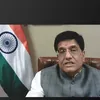Data sharing is key to improving patient health outcomes, experts say at TechSparks 2021
Speaking at TechSparks 2021, YourStory's flagship event, healthcare experts explained that data sharing is vital in improving clinical outcomes. While there are challenges in healthcare data sharing, stakeholders are optimistic about the future use of such medical records.
Digitisation in the healthcare segment has received a major boost post the COVID-19 pandemic. With the increasing adoption of technology in the segment, the dialogue on storage and sharing of medical data is opening up.
Realising the benefits of data in improving patient outcomes, both public and private players are developing ways to efficiently store and share electronic medical records. Most recently in September, Prime Minister Narendra Modi launched the Ayushman Bharat Digital Mission (ABDM) under which every citizen will get a digital health ID that will record and protect health records.
Speaking at YourStory’s TechSparks 2021, Dr Vidur Mahajan, Head of R&D, CARING Research - carpl.ai says that data is knowledge, and if knowledge isn’t shared, the world can’t be uplifted. In case of the healthcare, sharing of data is is key to improving clinical outcomes.

TechSparks 2021
“If there are N number of hospitals all over the world and they don’t tell each other what works and does not, in a speedy and efficient manner, we will not have an elevation of patient outcomes across the planet. It is an extremely obvious thing but also very difficult to implement… Data is knowledge and knowledge has to be shared for everyone to benefit from it,” he adds.
This year, with the theme 'What's Next: Rethinking the future', TechSparks 2021, YourStory's flagship startup-tech conference, is providing a platform for the most defining conversations on how disruptive technology innovations can shape our lives post-pandemic. TechSparks 2021 has brought together a constellation of over 400 global leaders, technology startups, large enterprises, and thought leaders from the global innovation ecosystem who are rethinking the future to enable what’s next.
Data in healthcare: Enhancing the patient experience
Speaking about using data by medical professionals, Dr Vidur explains that initially, doctors relied on insights from the data to decide on treatments, diagnostics tools among others. However, now with the focus on precision medicine and patient-centric care, doctors are also getting interested in data to understand what would be the best possible approach for a particular patient.
While addressing the audience during the event, Brandon Rowberry, CEO, Aster DM Healthcare says that healthcare is one of the “major success stories of humanity for the last few 100 years.”
“The importance of data sharing is the importance of human lives to continue to thrive and flourish,” he adds.
Prashant Shah, Global Head of AI, Health & Life Sciences, Intel explains that the main aim of data sharing is to help enhance the patient experience, improve population health, reduce cost and improve the work-life balance of healthcare workers.
“We heard the story about how healthcare workers have been stressed due to the pandemic but the burnout issue isn’t new. The burnout didn’t happen with COVID-19 but it only made it worse. So how do we create tools, AI models, intelligent systems so that you can assist the care providers to give more accurate tools to diagnose patients and even improve the whole process of providing care,” he explains.
He adds that Intel is currently working with the NIH (National Institutes of Health) to focus on a diverse range of datasets and develop systems that can be used across geographies.
Centralised vs federated learning model
Speaking about moving data between healthcare providers, Dr. Vidur explains that while, theoretically, everyone understands its advantages for improving patient outcomes, there is hesitancy around the legal framework.
Citing an example, he explains that one hospital giving access to insights and data from another hospital is one thing but it is a different ball game if one hospital has to move its data set to another hospital. This process would involve legal procedures, making it complex.
Highlighting Intel’s research with the University of Pennsylvania on training artificial intelligence models that identify brain tumors using federated learning, Prashanth explains that instead of centralising the data where there are challenges regarding moving the data sets, they are looking to move the AI models to where the data is.
“The model can train and from time to time, the learnings are aggregated from the hospitals participating in the federated learning process. Our research actually showed that we were able to hit almost the same accuracy as the centralised model,” he explains.
In this approach, the model gets more and more intelligent as it is trained across several hospitals across the world while breaking the barrier of sharing sensitive information from one hospital to another.
He explained that they are also exploring confidential computing technologies to ensure the privacy and security of the data and the AI, models.
Speaking about the challenges, Brandon too talks about the challenges involving growing complexity in getting different datasets, quality of the data sets, cleaning up the data, and rules & regulations in healthcare data which can change depending on geographies.
“I am optimistic because of what’s happening and I think in the next couple of years, we are going to make great strides there,” he says.
To log in to our virtual events platform and experience TechSparks 2021 with thousands of other startup-tech enthusiasts from around the world, join here. Don't forget to tag #TechSparks2021 when you share your experience, learnings and favourite moments from TechSparks 2021.
For a line-up of all the action-packed sessions at YourStory's flagship startup-tech conference, check out TechSparks 2021 website.

Edited by Affirunisa Kankudti








